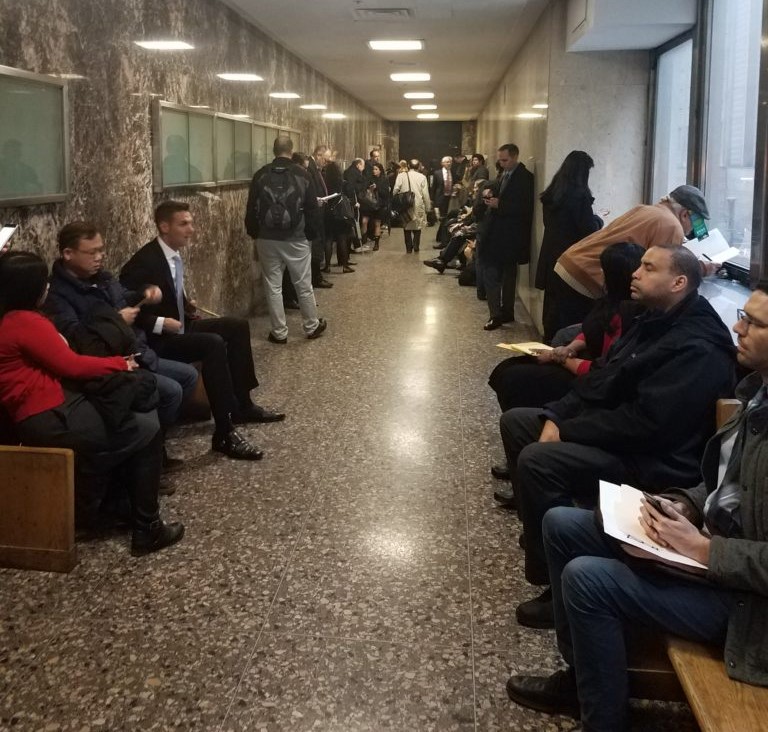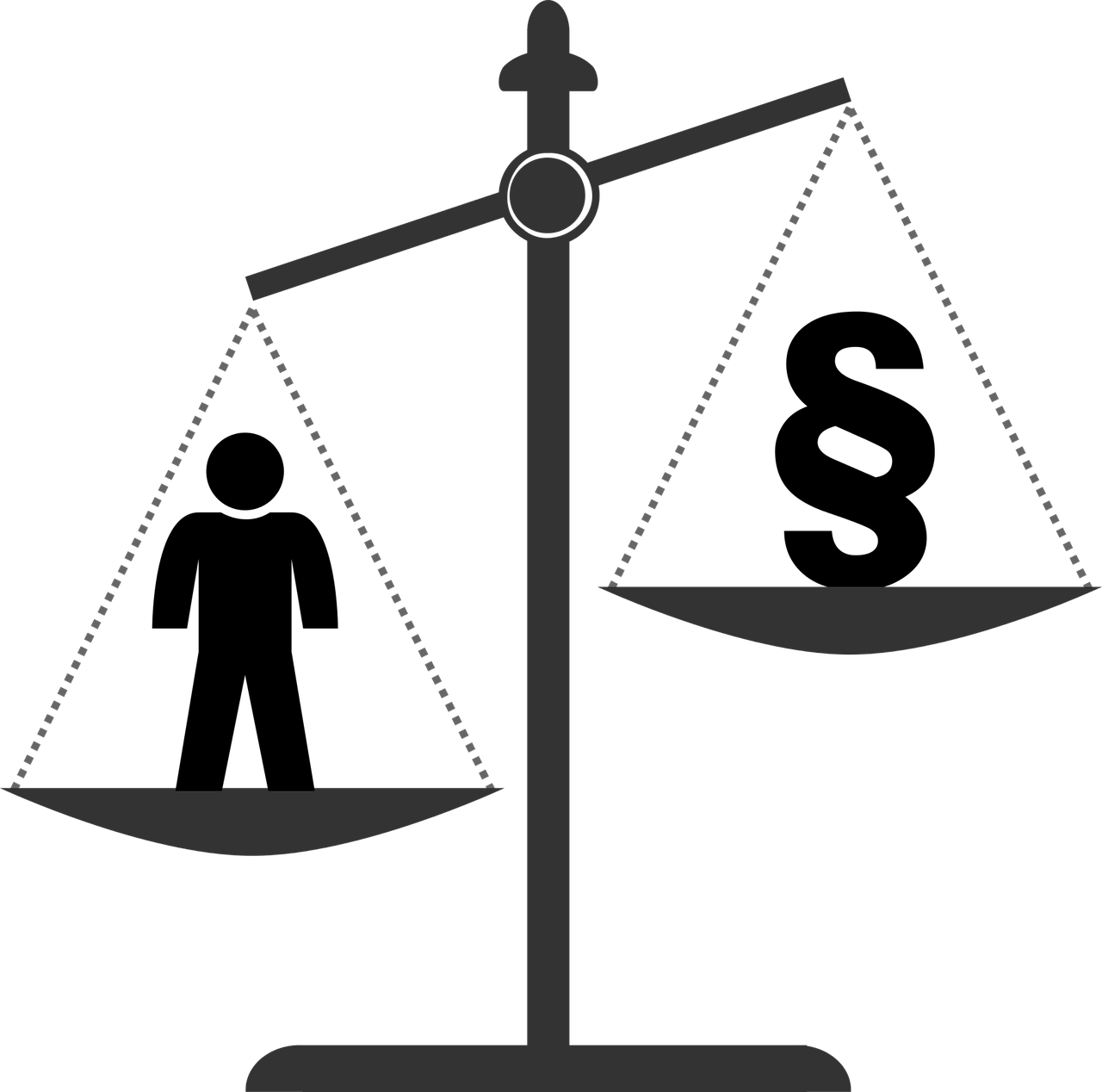NOTICE: This post references card features that have changed, expired, or are not currently available
It’s no secret that I’m a staunch advocate for consumer arbitration. I have had success going up against the big boys like Citi and Expedia, holding them accountable for mischievous behavior. One of the advantages that consumers have in arbitration is that companies are responsible for paying the majority of the arbitration proceeding. Factoring in outside counsel, these cases can easily cost corporations tens of thousands of dollars. This usually brings companies to the bargaining table where an efficient resolution can be reached.
But what about claims that do not have an arbitration agreement, what can consumers do in those instances? The answer is Small Claims Court. As an arbitration practitioner, I have limited experience in Small Claims. My first case was last year against British Airways for not refunding my cash and points reservation even though the representative said I could cancel with no penalty. British eventually settled the case and gave me an extra 20,000 Avios for my troubles. My next case in Small Claims did not settle, but it did provide a crash course of what to do and what not to do should you find yourself at 111 Centre Street in New York City (or similar venues across the country).
Question #1: Are Lawyers Allowed in Small Claims Court?
The answer depends on the state. In New York, lawyers can represent plaintiffs in Small Claims. In California, lawyers, according to the California Department of Public Affairs, are generally not allowed to do so. The better question is, are lawyers welcome in Small Claims Court? In talking to other New York attorneys and going to the proceeding myself, I would say that they are tolerated, at best.
Question #2: How Much Can I Sue For in Small Claims?
As the name of the court suggests, Small Claims Court is limited to claims that are not large. In New York City, claims cannot exceed $5,000. In California, individuals can sue for no more than $10,000.
Question #3: Where Do I Begin?
If your state provides it, the easiest way to file a small claims action is to use TurboCourt, a website that allows plaintiffs to file claims online. The cost varies per state but is inexpensive compared to traditional court.
Question #4: Where Do I Sue?
The answer to this question brings back terrible memories from my civil procedure course in law school. Fortunately, TurboCourt spells it out so even a lawyer can understand.
Initial Claims:
A case may be filed in the Small Claims Part of the New York City Civil Court ONLY if the defendant resides, works, or has a place of business within New York City.
Many major corporations have a place of business within New York City so jurisdictional issues are not as cumbersome a hurdle as they may be in other states.
Question #5: How Do I Notify the Defendant?
Notifying the defendant or service of process is another fun law school topic. For example, if you’re looking to sue someone in Arizona, is service proper if they are 30,000 feet in the air over the Grand Canyon? Luckily, most small claim litigants need not know the answer to this question. In New York, TurboCourt serves the defendant as part of the fee paid to initiate the process.
Question #6: What to Do When My Court Date Arrives?
TurboCourt will notify you of your court date. When the day comes, arrive to the courthouse on time with the pertinent documents generated by TurboCourt and with any documents that support your case.
Question #7: Who Are All These People?
In New York, night court used to take place from 6PM to midnight. Now it only goes from 6PM to 10PM. It is quite the spectacle to behold. It looks like a TV show: There are overdressed lawyers, angry litigants, and people from all walks of life waiting to have their day in court.
Question #8: What Do I Do When My Name Is Called by the Clerk?
Like a Black Friday sale, the doors are open and the mass of people shuffle into the courtroom. Then the clerk rattles off directions that delineate what the appropriate response should be when the plaintiff and defendant’s names are called.
Response #1, Application (Adjournment): And this is where the inefficiency of Small Claims comes in. I was ready to present my client’s case and sat there waiting for my name to be called. The clerk called out the defendant and plaintiff’s name. The defendant shot up out of his seat and said, “Application!” This meant that the case would not move forward that day. The case was postponed for a later date because the defendant did not send an attorney who had authority to address the claim. Instead the defendant hired an attorney to simply ask for an adjournment. Each participant can ask for adjournment one time in New York so long as someone is present to make the request.
Response #2, Ready for Trial: The pride that comes over the faces of participants when they proclaim that they are ready for trial validates, if only for a moment, my decision to become a lawyer. Even if the matter is trivial, the plaintiff can have his day in court.
Response #3, Mediation & Arbitration: Had the defendant in my claim showed up, I would have selected either mediation or arbitration in an effort to resolve the dispute. Mediation, unlike arbitration, is not binding. It is a process whereby a third party neutral hears both sides of the issue while taking note of the strength and weaknesses of the parties’ cases. The mediator tries to facilitate a settlement agreement. Mediation can be very effective if both parties are open to the process. In arbitration, the decision is binding and proceeds forward like a trial without the formalities of going before the judge. This, I was told by a seasoned small claims lawyer, is the smarter choice compared to trial. In trial, especially, as an attorney, I risk irritating the judge to my client’s detriment.
Question #9: How Do I Prepare for Trial, Mediation, or Arbitration?
I regret not sticking around for the trials. Based on what I saw before and during roll call, I would have been entertained by the real life version of The People’s Court. There were people misquoting the law left and right, mediators getting yelled at despite their desire to help, and a judge that was unfazed by it all. If you are going to Small Claims unrepresented, my advice would be not to use legal jargon, tell your side of the story succinctly, and never, under any circumstances, interrupt the judge or arbitrator. For participants in New York, this is a handy guide. Other than that, feel free to test any legal theory that might prove your case.
Question #10: I Won, I Lost, I Settled, What Happens Next?
I had a case against a company not an individual. Had I won or settled I would have signed a settlement agreement or a judgment would have been entered in my client’s favor. Enforcing that judgment or collecting on the settlement is not typically an issue against a corporation because the corporation cannot hide from the result. Claims against individuals are completely different. If you go up against an upstanding individual, he or she will respect the settlement or result of the case and pay you. If not, then the challenges of collecting are a topic for a different article. If you lose in arbitration, the decision is final. If you lose at trial, you have the right to an appeal. In that process, a higher court examines the trial court’s decision. Filing an appeal does not mean that you get a retrial.
Conclusion
Small Claims is a great way to handle issues where the amount in controversy is low, the issue is not complex, and when a lawyer is not allowed to represent a client in the proceeding. I recommend it for individuals who are seeking a quick outcome and are able to articulate their positions in a calm, lucid fashion. It is also a great venue to get a first-hand glimpse at the American justice system. I highly recommend filing a claim or attending a small claims proceeding at least once. After witnessing it myself, I can confidently say that claimants have more to gain and less to endure by filing an arbitration claim with the assistance of competent counsel.






I live in florida, I hire consultant to perform sound test according to specific standard, the consultant did not perform the task according to the standard I have proof and email with the merchant acknowledging minor deviation I found 3 expert who confirm those or not minor deviation it total invalid the result. I contact my credit card explain the situation file a complain upload evidence and the merchant lie to credit card company saying he did the job according to the standard and credit card agree with the merchant I owe the money.
What you recommend I use arbitration or bring the both to small claim credit card and the merchant
If I choose arbitration do I get damages from the merchant on to of the refund to have delay the process by not telling the true
If I choose arbitration where location of the arbitration going to be I live in florida the job have been perform in florida the merchant is from Vermont
Thanks
[…] Still, not every claim can be brought in arbitration. Others have to be adjudicated in small claims. For example, I had an issue with British Airways that did not have an arbitration provision. I filed that in New York Small Claims and the case settled. Counting on that positive experience, I took on another case against an airline hoping for a swift, equitable resolution. I detailed the play-by-play of my first time in small claims First-Hand Tutorial Guide. […]
Citi shut down my credit card accounts without reasons and forfeit my Thank You points and Dividend dollars. If I want to sue Citi in small claim court for the amount of around $2,600, where should I sue? I live in Colorado and I don’t see any Citi Branches here. Who should be the defendant on court document? Thanks.
I’ll add one thing: if you have to use small claims court, do not wait. One point made in the NOLO book is the number of should-have-been-winners small claims cases that lose because the plaintiffs wait for years before filing. In California the plaintiff has 4 years to file a case if there was a written contract involved. Don’t wait that long. Once someone decides they will need to go to court, they need to do it.
Most definitely, the statute of limitations will nullify even the most perfect claim.
[…] The Fine Print: Small Claims Court, A First-Hand Tutorial […]
This is a great article. Very interesting and you touched on a lot of good information eaithout getting too in depth.
Thank you.
I have to admit, this is a really good article and will help people go in the right direction if they want to consider suing.
Much appreciated.
Hey Alex,
Do you ever see the possibilty of a class action suit against US Bank, Vanilla, or Metabank materializing for their anti-consumer antics?
I’d love to collect even a dime for every GC I’ve purchased.
I have the receipts, but I gotta give them up or I might end up on an episode of A and E’s Hoaders.
Class-action is dead. The Supreme Court has ruled on this twice and now there’s another pro-business justice on the court. If you have an individual claim then consumer arbitration can bring about results. Just because there is no class action, does not mean that I can’t file 10,000 individual claims.
Enjoyed it! But this is confusing stuff! Sort of like fighting traffic tickets, a lot of our frustrations (in this miles & points space) are of such low amount, that taking 1+ day off work to prepare and sit in a depressing court house hardly seems to provide any ROI, even in the best case. I do agree with your earlier post(s) that to fight is often about the principal, and less about the money.
How much can you sue in relation to the actual loss that you have evidence for? Let’s say 1800flowers owes me 15,000 SW miles and has only made attempts at compensating me $50 worth of gift cards, so I’m still out $200+. But then 4 hours worth of email and phone calls had become the sunken cost, and sounds like going to court may take up another 10. At this point I’d hardly want to bother for 15,000 miles, but can my stress be factored into the amount that I ask for?
That’s why I would recommend consumer arbitration in 800 Flowers. 1) Let the lawyer deal with it. 2) Let the company pay for the process.
great post. a topic i have often wondered about.
Thank you.
A great post; much better than the usual blabber by all the “experts” on miles and points. Keep on with posts like this, and I may have to check in more frequently.(more than my usual once-a-day?) The Masked Poster
Thank you.
Thanks for this Alex. I just happen to be considering Small Claims Court and the article is very timely, especially with regard to Turbo Court.
You’re welcome, best of luck, and enjoy the experience.